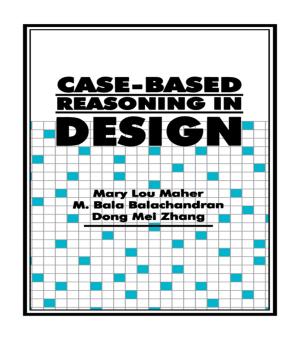| Author: | ISBN: | 9781351521529 | |
| Publisher: | Taylor and Francis | Publication: | September 29, 2017 |
| Imprint: | Routledge | Language: | English |
| Author: | |
| ISBN: | 9781351521529 |
| Publisher: | Taylor and Francis |
| Publication: | September 29, 2017 |
| Imprint: | Routledge |
| Language: | English |
The present work is an elaboration of the author's previous efforts in Emile Durkheim and the Reformation of Sociology (1988) and The Coming Fin de Sibcle (1991) to demonstrate Durkheim's neglected relevance to the postmodern discourse. The aims include finding affinities between our fin de sibcle and Durkheim's fin de sibcle, and connecting the contemporary themes of rebellion against Enlightenment narratives found in postmodern culture with similar concerns found in Durkheim's sociology as well as in his fin de sibcle culture, contributing to Durkheimian scholarship as well as to the postmodern discourse. The distinctive aspects of the present study flow from the focus on culture, communication, and the feminine voice in culture. Durkheim is approached as a fin de sibcle student of culture, and his insights applied to our fin de sibcle culture. Furthermore, because Durkheim claimed that culture is comprised primarily of collective representations, he was a forerunner of the current, postmodern concerns with communication. Because Durkheim shall be read in the context of his fin de sibcle, this book shall lead to the conclusion that Durkheim was a kind of psychoanalyst such that society is the patient, culture comprises the symptoms, and the sociologist must decipher, decode, and even deconstruct collective representations. Yet, the Durkheimian deconstruction proposed here is unlike the postmodern deconstructions, which criticize and tear apart a text without substituting a better meaning or interpretation. Postmodern discourse has made respectable again the synthesis of multidisciplinary insights that was fashionable in Durkheim's fin de sibcle. In following this postmodern strategy, this book is more than a book about Durkheim. It is also a book about his contemporaries, among them, Carl Justav Jung, Thorstein Veblen, Henry Adams, Georg Simmel, and Max Weber. The author does not follow the postmodern strategy completely, because he f
The present work is an elaboration of the author's previous efforts in Emile Durkheim and the Reformation of Sociology (1988) and The Coming Fin de Sibcle (1991) to demonstrate Durkheim's neglected relevance to the postmodern discourse. The aims include finding affinities between our fin de sibcle and Durkheim's fin de sibcle, and connecting the contemporary themes of rebellion against Enlightenment narratives found in postmodern culture with similar concerns found in Durkheim's sociology as well as in his fin de sibcle culture, contributing to Durkheimian scholarship as well as to the postmodern discourse. The distinctive aspects of the present study flow from the focus on culture, communication, and the feminine voice in culture. Durkheim is approached as a fin de sibcle student of culture, and his insights applied to our fin de sibcle culture. Furthermore, because Durkheim claimed that culture is comprised primarily of collective representations, he was a forerunner of the current, postmodern concerns with communication. Because Durkheim shall be read in the context of his fin de sibcle, this book shall lead to the conclusion that Durkheim was a kind of psychoanalyst such that society is the patient, culture comprises the symptoms, and the sociologist must decipher, decode, and even deconstruct collective representations. Yet, the Durkheimian deconstruction proposed here is unlike the postmodern deconstructions, which criticize and tear apart a text without substituting a better meaning or interpretation. Postmodern discourse has made respectable again the synthesis of multidisciplinary insights that was fashionable in Durkheim's fin de sibcle. In following this postmodern strategy, this book is more than a book about Durkheim. It is also a book about his contemporaries, among them, Carl Justav Jung, Thorstein Veblen, Henry Adams, Georg Simmel, and Max Weber. The author does not follow the postmodern strategy completely, because he f















